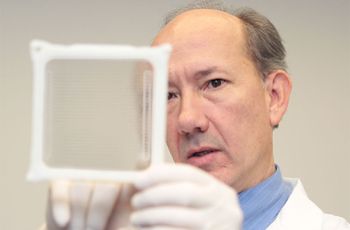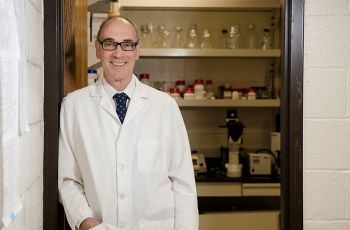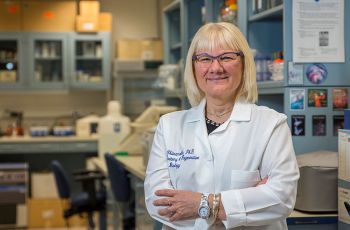Research News
The George Washington University (GW) School of Medicine and Health Sciences (SMHS) was recently awarded a National Institutes of Health (NIH) T-32 research training grant. The five-year grant, worth nearly $1 million overall, will support the training of junior scientists who will advance research…
In a recent study, Tim McCaffrey, PhD, professor of medicine at the George Washington University School of Medicine and Health Sciences, led a team of researchers conducting the largest RNA expression analysis of human coronary artery disease to date.
The George Washington University (GW) School of Medicine and Health Sciences (SMHS) announced that Robert H. Miller, PhD, will serve as the vice dean for research and academic affairs, effective Aug. 1, 2021. Miller has been serving on an interim basis in this role since early 2020.
Anne Chiaramello, PhD, associate professor of anatomy and cell biology and founding director of the Mito-EpiGen Program, discusses the $1.13 million NIH grant she is working on with Andrea Gropman, MD, from Children’s National Hospital, to test a novel therapeutic approach for two rare…
The George Washington University School of Medicine and Health Sciences researchers have been awarded a $3.6 million contract to genetically modify commensal organisms to produce antidotes for harmful biological and chemical agents, such as anthrax, Ebola, and even COVID-19.
A vaccine for Lassa fever may be on the horizon, thanks to a new clinical trial jointly led by Elissa Malkin, DO, MPH, assistant research professor of medicine at the George Washington University School of Medicine and Health Sciences.
The key to unlocking a critical element of breast cancer treatment may lie with the work of Mei-Yi Wu, PhD, associate research professor in the Department of Anatomy and Cell Biology at the George Washington University School of Medicine and Health Sciences.
The George Washington University (GW) Cancer Center recently announced the selection of the 2021 GW Cancer Center Awards, recognizing excellence in research, mentorship, and early career contributions.
The GW School of Medicine and Health Sciences HIVE lab takes 5th place out of 44 teams competing teams the Veterans Administration’s 2020–21 National AI Tech Sprint. Their prototype application harnesses powerful machine-learning tools for treatment outcome prediction and guided clinical…
Michael Bukrinsky, MD, PhD, professor of microbiology, immunology, and tropical medicine at the George Washington University School of Medicine and Health Sciences, is conducting two studies focusing on HIV-associated disorders, with the support of grants from the National Institutes of Health.…








